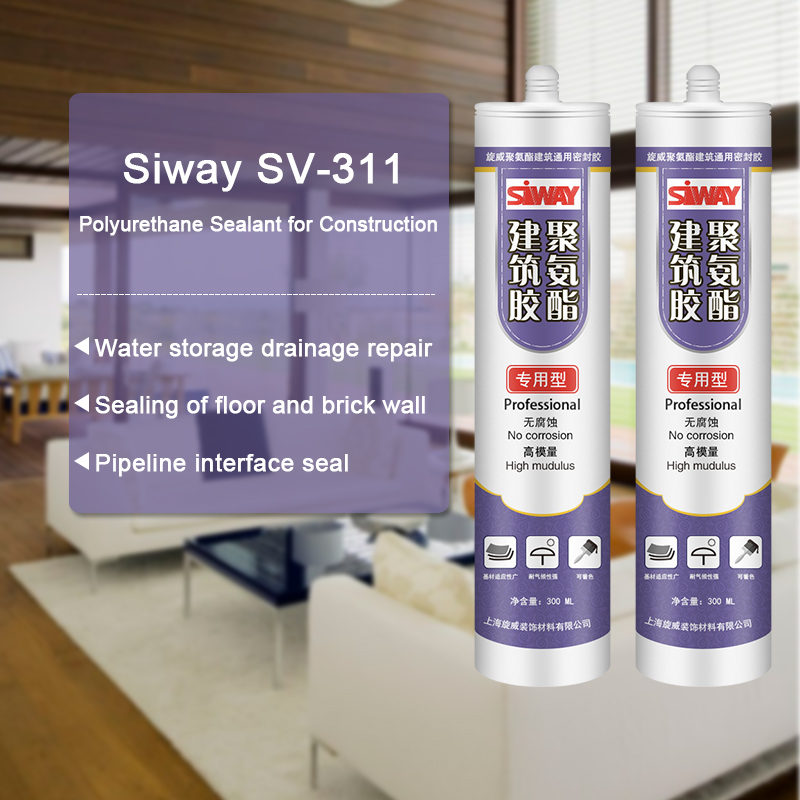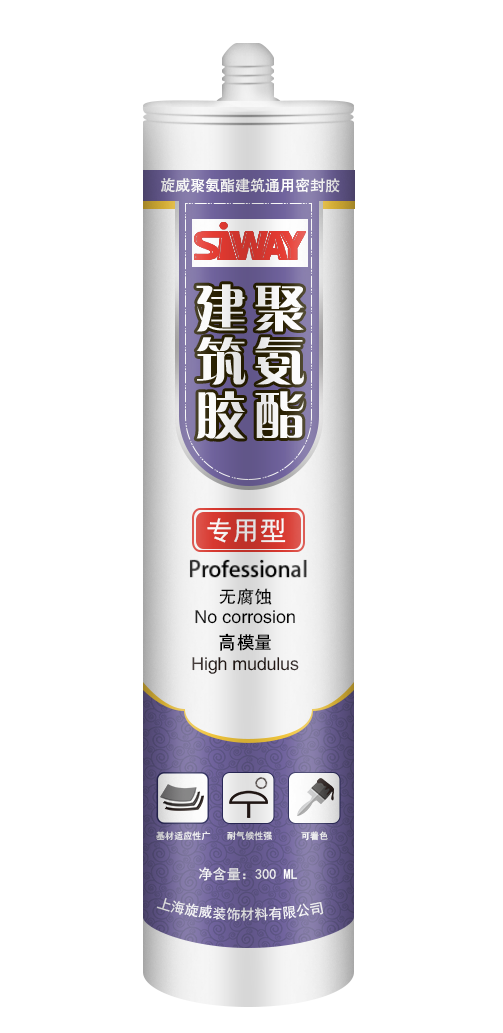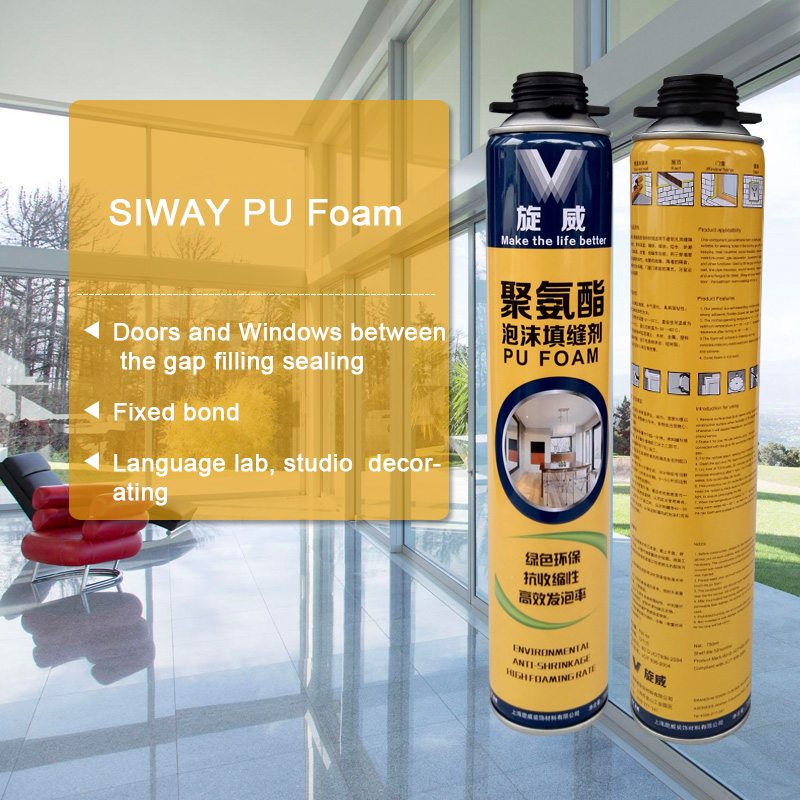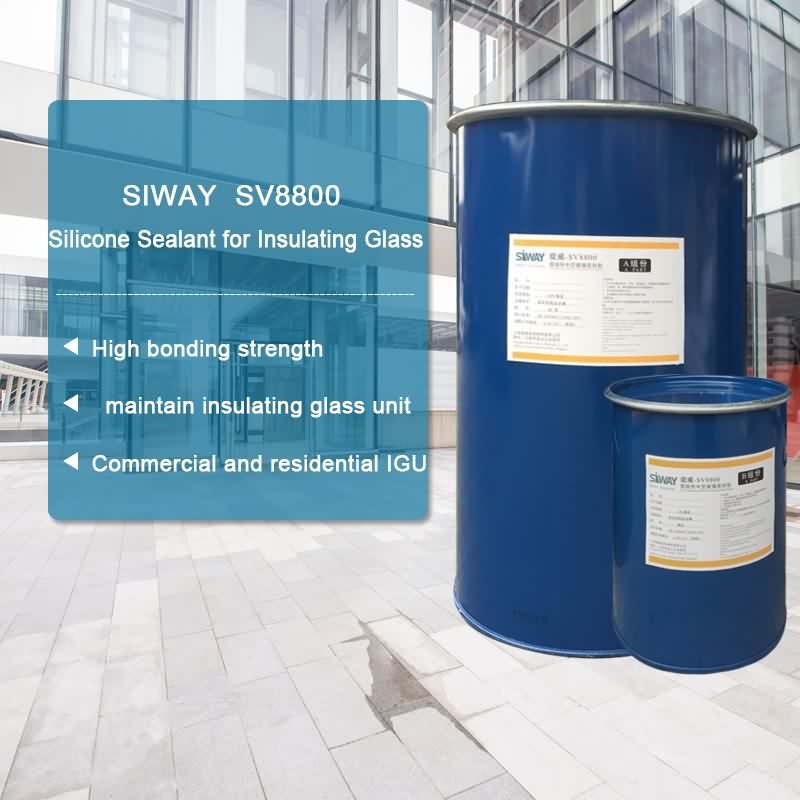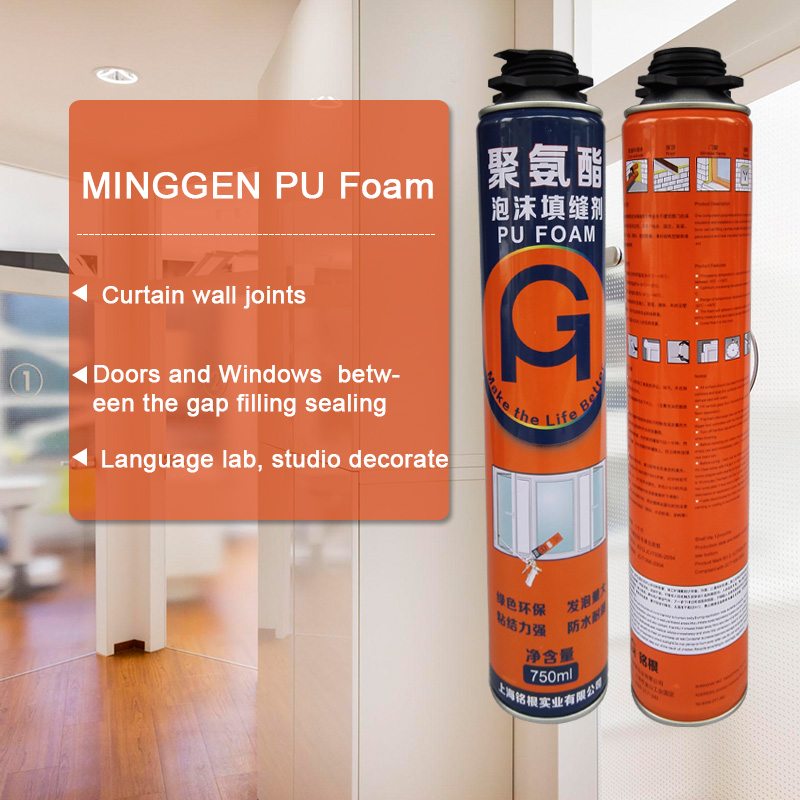19 Years manufacturer SV-311 Polyurethane Sealant for Construction to Ecuador Importers
Short Description:
Description SV-311 is a one component polyurethane high modulus flexible sealant formulated as reliable bonding adhesive and joint sealant for construction industry, particularly where a higher modulus and lower movement capacity are required for joints with low or medium movement, e.g. connection joints between floor/stairs and wall, connection joints between floor and machinery, seam sealing / sealing of pipe ducts / ventilation systems, multipurpose joints in metal and wood construction w...
Every member from our high efficiency sales team values customers' needs and business communication for 19 Years manufacturer SV-311 Polyurethane Sealant for Construction to Ecuador Importers, We are always looking forward to forming successful business relationships with new clients around the world.
Description
SV-311 is a one component polyurethane high modulus flexible sealant formulated as reliable bonding adhesive and joint sealant for construction industry, particularly where a higher modulus and lower movement capacity are required for joints with low or medium movement, e.g. connection joints between floor/stairs and wall, connection joints between floor and machinery, seam sealing / sealing of pipe ducts / ventilation systems, multipurpose joints in metal and wood construction work.
Key Features
1. Non-sag consistency
2. Excellent adhesion to most common building materials
3. High tear strength
4. High tensile strength
5. Less fluid migration to porous material
Technical data sheet
| Test standard | Test project | Unit | value |
| GB13477 | density | g/m³ | 1.20±0.1 |
| GB13477 | Flow, sagging or vertical flow | mm | 0 |
| GB13477 | surface drying time(25℃,50%R.H.) | min | 30 |
| Curing speed | mm/24h | 3 | |
| GB13477 | Durometer Hardness | Shore A | 25-35 |
| GB13477 | 100% tensile strength | Mpa | ≤0.4 |
| GB13477 | The elastic recovery rate | % | 80 |
| Maximum seam width | mm | 35 | |
| Minimum seam width | mm | 8 |
Color
White, black, grey
Package
300ml plastic cartridges and 600ml in sausage
Shelf life
9 months
Note
If you want the TDS or MSDS or other details, please contact with our sales person.
https://www.sincosilicone.com/
Email: info@sincosilicone.com
silicone sponge beauty blender private label manufacturers cosmetics
For more information on MakerBot Desktop 3D Printers visit – https://goo.gl/Yk8IOY
For more information on 3D Printing services, and finishing services for 3D printed parts visit – https://goo.gl/Q6hCyf
To purchase supplies for your MakerBot 3D Printer, or other desktop 3D printer visit – https://goo.gl/mhpbMi
SILICONE MOLDING WITH 3D PRINTED MASTERS
Silicone molding is a powerful production method that, when combined with 3D printing, can allow you to make several copies of one product.
SUPPLIES
3D printed mold box, hardware, vents & keys (read on for more info).
Master (the print you are molding)
Silicone
Resin and dye
Mixing cups
Mixing sticks
Mold release spray
Hot glue or cyanoacrylate glue
Funnel
Ex acto knife
Rubber bands, tape, or straps
Gloves
Respiratory mask
Eye protection
STEP 1: CHOOSE A FILE TO CAST A MOLD AROUND
Obtain a file that you would like to either make several of, or create in a material not supported by your printer.
STEP 2: CREATE A MOLD BOX
The next step is to create your mold box. This is the structure that will hold the silicone in place around your part when pouring. Your master will need to be suspended in this structure.
STEP 3: PREPARE AND PRINT
Select standard print settings.
STEP 4: SUSPEND MASTER IN MOLD BOX AND PREPARE
A: Spray your mold box, master, vents, and keys with mold release.
B: Choose prints across model to glue vents
C: With our 3D printed mold box we were able to glue our master directly onto the pour hole during preparation.
D: Spray again with mold release for good measure
STEP 5: OPEN BOTTLES OF SILICONE (PARTS A AND B) AND STIR THOROUGHLY
As silicone comes in two parts, it needs to be mixed both individually and once combined with its hardener.
Mix slowly using separate mixing sticks.
Open Silicone Parts
STEP 6: MEASURE
A: Determine the volume of silicone needed to fill your mold
B: Measure desired amount of silicone and hardener separately in two measuring cups.
STEP 7: MIX SILICONE
Once you have measured each part, combine the two parts into one mixing cup and stir slowly with a mixing tool.
Be cautious not to stir in air bubbles. Be sure to scrape the sides of the cup to mix in all material.
Once your parts are thoroughly mixed the curing process will begin.
STEP 8: POUR INTO MOLD PART ONE
Pour silicone into the first half of your mold box.
When pouring, pour slowly into one corner of the mold box and allow the silicone to run to other parts of the mold box as it fills.
Stop when the silicone reaches the top of the first half of your mold box.
Once you have poured your silicone place small keys into the silicone. These will create negative spaces and allow the mold halves to fit together once poured. We will remove them before pouring the second half of our mold.
Pour Into Mold
STEP 9: LET CURE
Depending on what type of silicone you are using it can take anywhere from 75 minutes to overnight to cure. Temperature and humidity will affect curing times, so we recommend this process be done in a room temperature environment.
STEP 10: ATTACH AND PREPARE MOLD PART TWO
Once our mold has set, we will prepare to pour the second half of our mold.
A: Remove the keys you inserted in step 9.
B: Attach and secure second half of mold box.
C: Spray with mold release
STEP 11: POUR INTO MOLD PART TWO
Repeat steps 5-9 and create the second half of your mold
STEP 12: LET CURE
STEP 13: BREAKDOWN MOLD AND REMOVE
Once both halves of your mold have cured you are ready to remove them from the mold box and begin using them to recreate parts.
A. Remove the hardware
B: Remove the mold from the mold box and open.
C: Remove the master and vents.
STEP 14: REASSEMBLE AND PREPARE MOLD
A: Ensure that all parts of your mold are correctly aligned, and plug any holes created by vents.
B: Secure mold pieces using rubber bands, straps, or tape.
STEP 15: MEASURE RESIN AND ADD DYE
Supplies Used: Resin (Part A & B), measuring cups, measuring sticks, dye.
Just as with silicone you will need to measure each part of the mixture taking into account the volume needed to create a part.
If you have made several molds, you can mix a larger quantity of resin and pour several molds at once.
Add dye to the part of the resin mixture specified in the instructions.
STEP 16: MIX RESIN
Combine both parts of the resin mixture and mix thoroughly being sure not to stir in air bubbles.
STEP 17: POUR RESIN
Once mixed, pour immediately into the opening of your mold using a funnel.
Pour slowly as not to overfill and spill resin.
Any resin that remains in the mixing cup will harden, but can typically be removed afterwards.
Pour Resin
STEP 18: LET CURE
Once poured, allow the resin to cure for the appropriate amount of time.
STEP 19: OPEN AND REMOVE
Once your resin has cured, you can open the mold and remove your cast part.
Any resin that escaped through seams or voids and cured is called “flash”. Flash will need to be removed from the part through post processing.
FINAL PART
